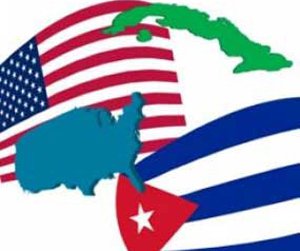New US Regulations on Trade and Travel to Cuba

The U.S. government has begun implementation of measures previously announced by President Obama, eliminating some restrictions on trade with Cuba, and travel to the country by U.S. citizens in certain categories. The economic, financial and commercial blockade remains in place, along with prohibitions on tourism and maritime travel.
On January 15, the United States government announced the implementation of measures announced by President Barack Obama on December 17, 2014, eliminating some restrictions on trade with Cuba, and travel to the country by U.S. citizens in certain categories. A preliminary reading of the regulations issued by the Treasury Department’s Office of Foreign Assets Control indicates that these changes modify the enforcement of some aspects of the blockade. Although the travel ban has not been eliminated – which would require Congressional action – some restrictions on travel by U.S. citizens and permanent residents in 12 previously established categories were eased.
Among changes are the removal of limits on travelers’ expenses in Cuba; permission to use credit and debit cards; and authorization for travel agencies, airlines, and insurance companies to organize services for travel to Cuba. Nevertheless, tourism and maritime travel remain prohibited. Among other changes was an increase in limits on remissions sent to Cuba by family members resident in the United States, from $500 to $2,000 every three months. Restrictions on U.S. exports to Cuba remain in place, including those on advanced technology products, although limited sales to private parties, via Cuban import-export companies, of construction materials and agricultural equipment will be allowed. Prohibitions on the export of Cuban products to U.S. markets remain in place, although visitors will be able to return with purchases of up to $400 dollars, including $100 worth of cigars and rum. Telecommunications services were addressed, reflecting the stated U.S. objective of increasing its influence in Cuban society. This is the only sector in which U.S. investment in infrastructure is authorized, along with sales of services, software and equipment, – excluding products with advanced technology. Additionally, U.S. financial institutions may open accounts at Cuban banks for transactions related to authorized activities, but the change is not reciprocal.
Cuban banks cannot open accounts in the United States. The new regulations do not modify existing restrictions on maritime travel, although ships from other countries transporting food, medicine, medical equipment or emergency materials to Cuba will no longer be prevented from traveling directly to the United States. Other ships will continue to be required to wait 180 days before entering a U.S. port. Key aspects of the blockade were not affected by the modifications, among these are prohibitions on the use of the U.S. dollar in international transactions; the acquisition in other markets of technological products and equipment containing more than 10% U.S. made components; commercial relations with subsidiaries of U.S. companies in other countries; and imports to the United States of products containing raw materials from Cuba. The announced measures constitute a step in the right direction, but much remains to be done to dismantle other aspects of the economic, commercial and financial blockade via Presidential executive authority, and action on the part of Congress to end the blockade once and for all.

